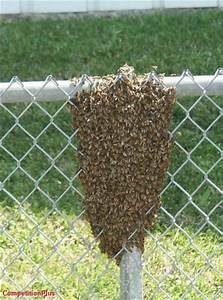
Here are brief interesting entries and some unknown Chaucer ambiguities - his two-faced words
Friday, July 27, 2018
Saturday, July 14, 2018
It's a Joke -- Really!
More
than one hundred years ago, a scholar involved in the renewed interest in
Chaucer, read a little story told by the Cook as being vulgar. ‘Tain’t so! The
surface impression of a "licentious…apprentice"
is only a humorous façade.
The
Cook, an ordinary guy, states he will tell a “litel jape”—a little joke. His
hero is an apprentice, but not an apprentice cook. He’s a victualler, a
gatherer of foodstuffs. That’s
significant!
He’s brown as a berry, a proper short
fellow, like a hive full of honey and merry as a bird in the woods. His name is
Perkyn Revelour which leads us to believe he enjoyed reveling with his kin. Aside from his color, we’re given only
one other physical detail: he has neatly
combed black hair. The picture I get from Chaucer’s details is a medieval
English brown bee. And, as one beekeeper charmingly put it, he wears a "round
velvet cap."
So
how is his apprenticeship going? Perkyn hopped and sang at weddings, played
stringed instruments, and preferred the tavern to the shop. If he saw a group
riding out, he'd be sure to join them to play at "dys," implying dice! But these “dyes” refer to the
great attraction of colorful flowers! The "riding" he joined mentions
no horses. Bees would have no need. The omitted details are part of the jape.
That
group (swarm) could engulf a blossomy bough or a new gate. Chaucer teases with
a “Newgate” because it’s the name of a building
in London.
It’s
obvious that Perkyn is not a worker bee but a good-for-nothing drone. He
guzzles honey stored in the hive and invites another drone to join him. Chaucer
records the beekeeper’s lament: oft times he found his box full bare. Chaucer
uses straightforward bee vocabulary to say the two rascals, Perkyn and his accomplice
(lowke) would suck (sowke)
what they could steal or borrow.
At the end of the honey-making season (which
parallels the end of apprenticeship), misfits are actually driven from the hive
and perish. Some drones may find temporary shelter in another hive; that is a
fact. When Perkyn is put out, his accomplice offers hospitality for a time.
Chaucer’s last lines tell us his rascal
friend has a wife. She ran “a shoppe, and swyved
for hir sustenance." "Swyving" (“copulating”) is the word
that offended the 19th-century scholar. But the word is a clue to
the joke! It identifies her as a
prostitute—in 14th-century terms, a quene
—which is a very strong clue for a "queen" bee. Though the 14th
century did not understand life in a hive the way we do, they assumed a hive
had a queen bee.
The story seems to “end” abruptly, but
with the identification of a quean/quene, no more need be said! The Cook’s
Pilgrim companions would have caught on and had a good laugh.
Subscribe to:
Posts (Atom)
-
We’re here to string together bits of evidence of Cecilia. The raptus episode (see previous entry), in which Cecilia accused Chaucer, occur...
-
Getting acquainted with the Canterbury Pilgrims bothered me. Why were they such a distinctive and assorted group? Certa...


